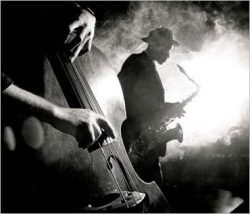Interview with John Gennari
Download the mp3 here
Click here for more information about the book Flavor and Soul by John Gennari
“There is no other than Gennari—a huge-hearted scholar of voracious curiosity and impeccable taste—to productively mine what happens when black and Italian meet. He sees the third thing those two galaxies of history and self-expression create at the crossroads.
Cooking and eating, sports, film, and, of course, music are where the most potent and telling cultural action is, where we go to experience the true beauty and meaning of life in a world where we may know ourselves deeply along cultural lines but then find so much more at the recombinant intersection.
Flavor and Soul is brilliant, encyclopedic scholarship that also accomplishes the rare work of speaking directly to and from the heart. This is a passionate treasure book of scholarship and ultimately a handbook for living a rich, surprising, culturally-guided life.”
(Elizabeth Alexander, author of The Light of the World: A Memoir)
Famed Sicilian-American New Orleans record producer Cosimo Matassa (born 1926) recalls life in the French Quarter growing up in the 1930s and 40s.
Download the mp3 here
Click here for more information about the book Flavor and Soul by John Gennari
Not covered in the interview, but this seem like a good place to put it for now:
“I’m beginning to find out that an awful lot of early jazz history is totally wrong. Here is a quick example. There are a number of well-known New Orleans trumpet players who came out of New Orleans at the same time. A third of them were White Italians, and the Italians were just as despised as Blacks and they lived in the same neighborhoods and they played the same music. Gerald Early, a very famous professor of African-American history at Washington University always starts his lectures showing that whites have been in this from day one. It’s an American music.”
– David Owsley
Source: https://syncopatedtimes.com/a-conversation-with-saint-louis-jazz-historian-and-radio-personality-dennis-owsley/
Note from Ken: Sicily, which was the source of most of the Italians who landed in New Orleans in the late 19th and early 20th century, has a rich tradition of…brass bands that march in well put together uniforms. If I were a betting man, I’d say African-Americans adopted this tradition from their Sicilian brothers in New Orleans and made it their own.
Video references
Jon Batiste on the influence of opera on Louis Armstrong
The opening cadenza to West End Blues – one part opera, one part blues
Louis Armstrong and opera
After completion of my season at the Metropolitan Opera during the 1950’s, I would go to the Sands Hotel in Las Vegas where Louis and I performed both singly and together for a few weeks. We had special material written for us where we reversed roles, doing opera versus jazz; he singing ”Vesti la giubba” and I singing ”Honeysuckle Rose.” Between shows, he would regale me with reports of his European tours, especially in Italy, where he made a point of visiting opera houses, and tell me, ”Man, I met all of them cats over there.”
ROBERT MERRILL
New Rochelle, N.Y.
From a letter to the New York Times dated April 2, 2000
Louis Prima, his then-wife and “straight man” Keely Smith, Sam Butera and the Witnesses
Frank Sinatra and Count Basie and his Orchestra, arranged and conducted by Quincy Jones (1965)
Qunicy Jones talks about Frank Sinatra
New Orleans “soul” music – Aaron Neville sings “Ave Maria”
Click here for more information about the book Flavor and Soul by John Gennari
– Ken McCarthy
Jazz on the Tube
Music credit: The Jazz on the Tube podcast theme song is “Mambo Inferno” performed by The Manhattan School of Music Afro-Cuban Jazz Orchestra conducted by Bobby Sanabria from the CD ¡Que Viva Harlem!





